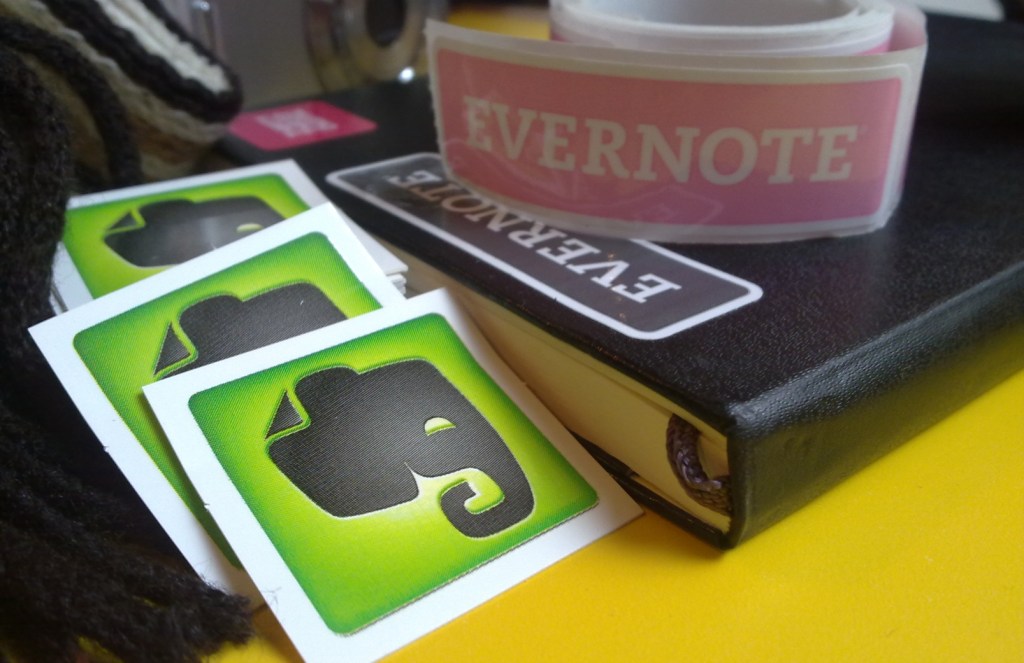Some more news from Evernote — the note-taking app and startup of the same name — that speaks to the company’s current rough patch: today it announced that as of Wednesday at 6pm Pacific, it will shutter Market, the e-commerce platform where it sold Evernote swag and Evernote-integrated office products, in an attempt to create another revenue stream around its more dedicated users.
Separately, we’ve also learned that there is another senior departure at the company: Ronda Scott, the company’s longtime head of comms, is leaving at the end of this week.
The moves come at what has been a pretty difficult period for the startup. Developments have included a number of senior departures, including that of the previous, longtime CEO Phil Libin; other underperforming products getting axed, and the startup — once commanding a $1 billion tag — among several whose valuations have more recently been marked down by large fund managers.
In a blog post announcing the news today, head of partnerships John Hoye wrote that the move is being made as part of Evernote’s restructuring around its core business as a software — not e-commerce — company.
“Evernote is a software company. Building and perfecting the Evernote experience is where we’ll be focusing our future efforts. Instead of selling and fulfilling orders ourselves, on February 3rd, we will transition the Market to promote Evernote-integrated products made and sold by our partners at Adonit, Moleskine, and PFU,” he said. “We plan to continue adding partners and integrations that strongly and elegantly complement Evernote to that list.”
Remaining products will be shown off in the form of links, which will redirect users to other sites in order to purchase them, a spokesperson confirmed.
Evernote the app has been working for years on building its service around a freemium model — with a basic version of the app available for free on the premise that it would be so useful that enough people would be willing to pay extra for the paid/premium tiers that provided more storage and more functionality.
Its former CEO Libin was a big fan also of touting the company’s longevity: in his view (and the company’s up to now), Evernote was a place to store everything for your lifetime and beyond. The company says it has over 150 million users globally but does not break out how many of them are paying for the service.
Putting to one side questions of whether Evernote (or its users) may need to reconsider at some point the infinite nature of the service, just looking at the app itself, the Market was a curious concept.
Evernote is a startup based around keeping documents in the cloud — and eliminating the need for paper. So when the Market and its focus on notebooks and other products was introduced in 2013, it did feel a little out of left field.
Libin at the time justified the move of peddling products like Moleskine notebooks but also post-its as a way of expanding the Evernote experience in a good way (never mind the Evernote themed socks, I guess):
“Paperless is not the goal — great experience is not the goal.” Libin said. “We want to eliminate the stupid uses of paper, but we want to extend the great uses.” A year after that the company said it had sold some $12 million in goods through the store. And today it updated that with other numbers: over 800,000 Evernote Moleskine notebooks, 300,000 Jot Script styluses and nearly 20,000 ScanSnap Evernote Edition scanners.
But at the end of the day, it seems those numbers did not really meet the costs of maintaining the operation. So now that Evernote is calling time on all frivolities; trying to get back to the heart of what made the startup so popular in the first place; and driving more premium users — which are up 40% on a year ago, a spokesperson tells me — the decision to shut the Market was probably an easy sell at the startup.































Comment